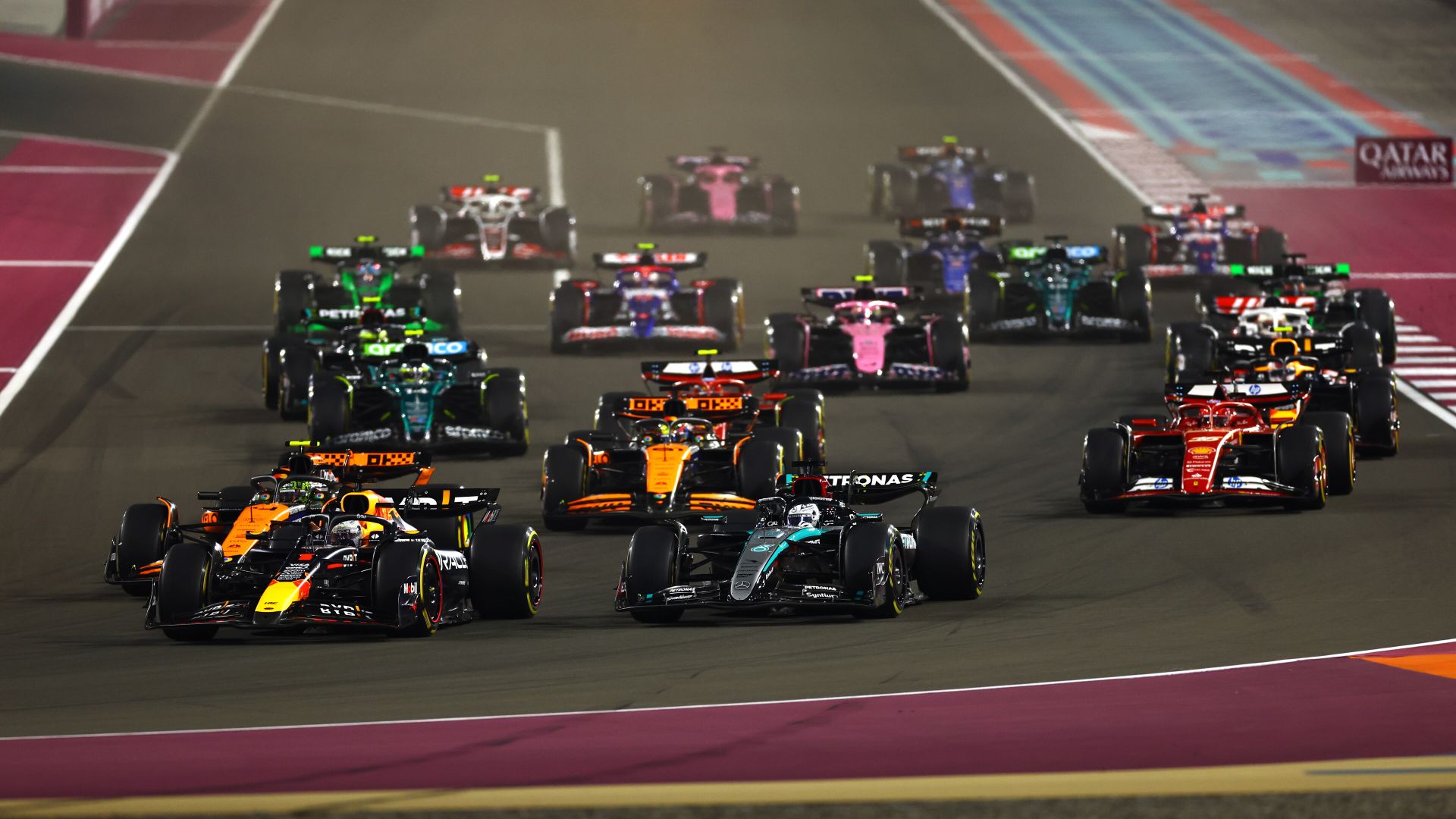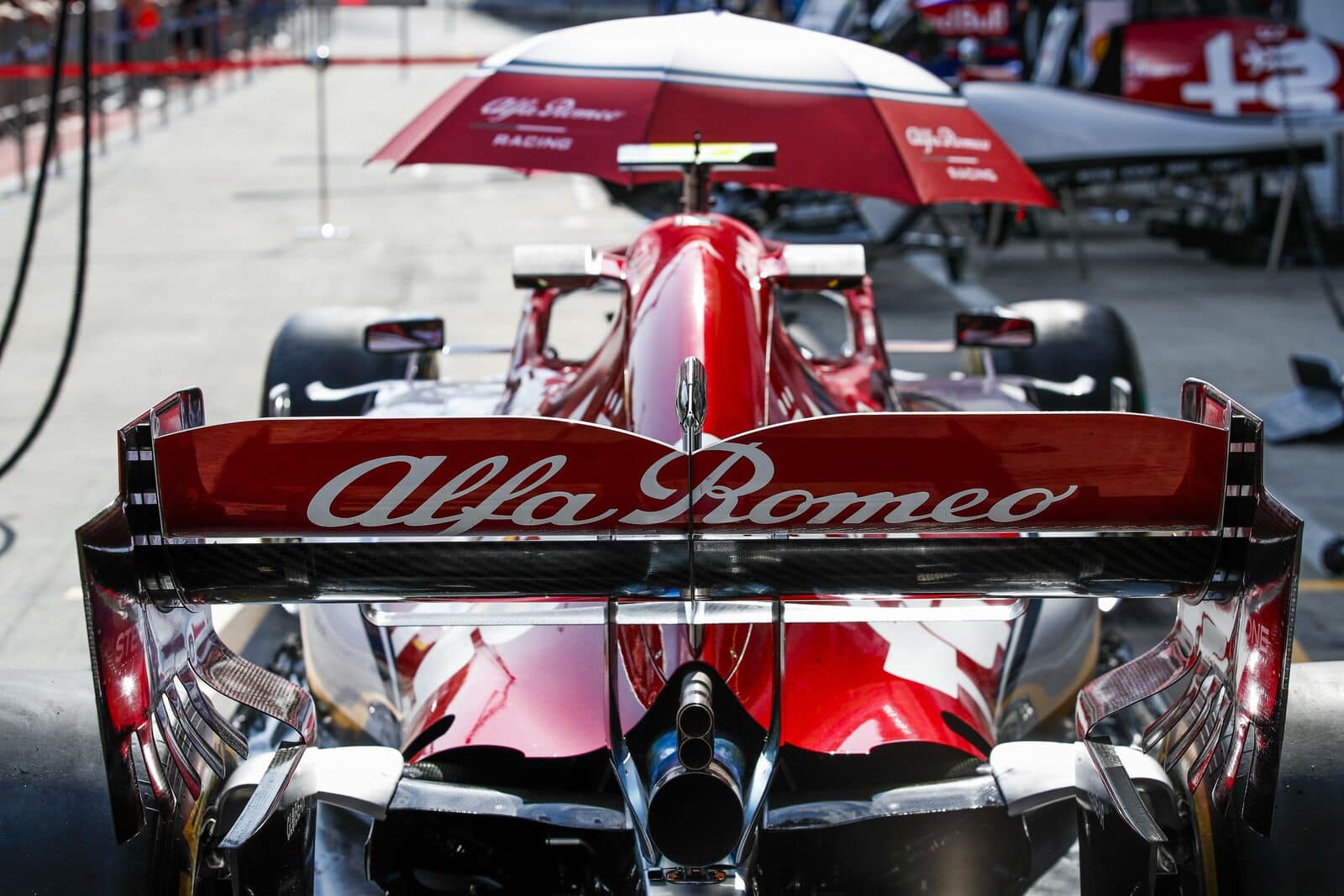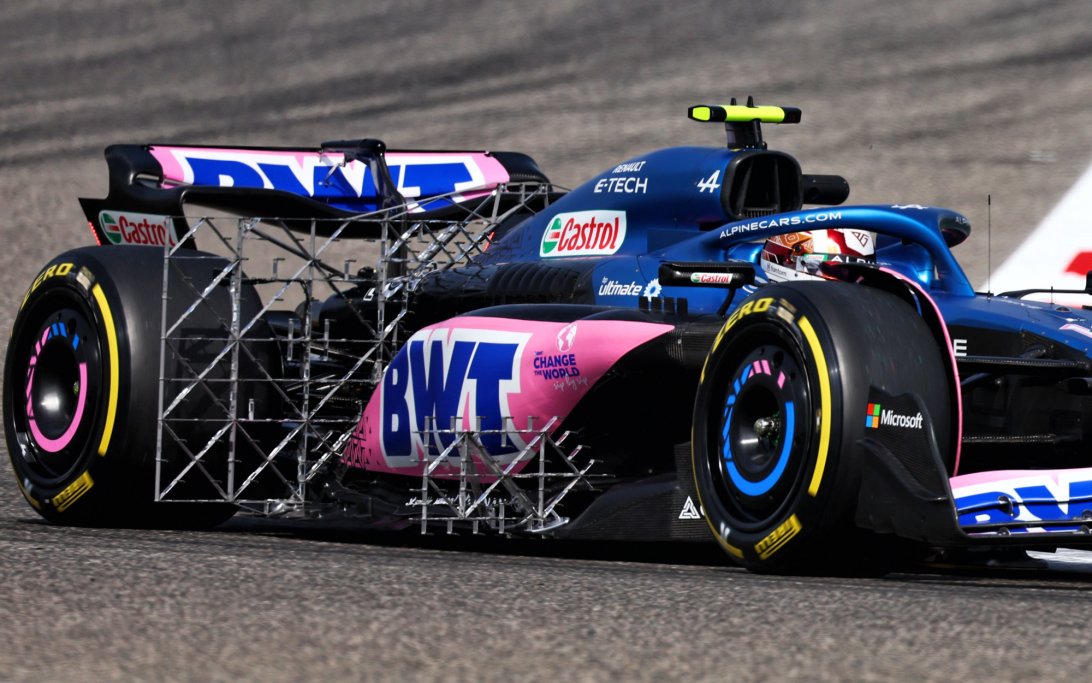Smart Info About Why Is 1 Not Used In F1

The Curious Case of the Missing Number One in Formula 1
1. Why Isn't Number One on the Grid?
Ever watched a Formula 1 race and wondered why you rarely, if ever, see the number '1' plastered on the nose of a car? It's not like teams are superstitious about odd numbers (well, some might be, but that's another story!). The reason is actually quite interesting and tied to the World Champion.
The number one is reserved exclusively for the reigning World Champion. Think of it as the ultimate status symbol, a badge of honor signifying that you're the fastest driver on the planet. It shouts, "I conquered all!"
Now, here's where things get a little nuanced. The champion doesn't have to use it. They have a choice. It's like being offered the keys to the city — you can take them, or you can stick with your old set. Some champions prefer to stick with the number they've used throughout their career, feeling it's part of their identity and brand. This is actually more common than you might think!
Its a tradition steeped in history and respect for the current title holder, but with a dash of personal preference thrown in for good measure. It all makes the sport slightly more fascinating, doesnt it?

The Champion's Prerogative
2. The Choice is Theirs
So, what happens when a World Champion decides not to run the number one? Well, their team gets to choose a number for their other driver, and everyone else just keeps their assigned numbers. No reshuffling or anything dramatic. The number one simply sits on the sidelines, patiently waiting for a champion willing to wield its power.
Michael Schumacher, for instance, famously stuck with his number 5 for much of his career, even after winning championships. He felt a connection to the number and saw it as part of his identity. It's a testament to the personal branding that drivers cultivate, and it shows that sometimes, tradition takes a backseat to individuality. It's understandable, after all. Imagine racing with a number you don't feel represents you. That's not a confidence booster!
And speaking of confidence, for some drivers, running the number one carries immense pressure. Its a constant reminder that youre the benchmark, the target everyone is trying to beat. Some drivers might feel that this added pressure hinders their performance, preferring to race with a number that feels less weighty.
Ultimately, the choice rests solely with the champion. It's a fascinating example of how tradition, personal branding, and psychological factors can all intertwine in the high-stakes world of Formula 1. It makes you wonder, if you were a champion, would you embrace the number one, or stick with your lucky digits?

Why Is F1 Safety Car Orange At The British Grand Prix?
A Brief History of the Number One in F1
3. Past Champions and Their Number Choices
Lets take a quick trip down memory lane and look at some notable examples of champions who either embraced or shunned the number one. There's a rich tapestry of stories woven into the history of this tradition.
In the "olden days" of Formula 1 (before permanent driver numbers), it was common practice for the reigning champion to use number 1. It was just part of the tradition. However, as driver identities became more closely tied to specific numbers, things started to shift. The introduction of permanent driver numbers from the 2014 season onwards really changed the dynamics of this tradition. Even so, the reigning champion still has the right to run with number 1, as Max Verstappen did in 2022 and 2023.
There were periods where the number simply wasn't used. After Nigel Mansell won the title in 1992, he left Formula 1 to race in IndyCar. As a result, Alain Prost, the 1993 champion, could not run the number 1, as it was still technically allocated to Mansell (who was no longer in the sport!). 1994 champion, Michael Schumacher ran with number 2, his teammate Johnny Herbert took number 1 for two races, but had to switch back to his usual number 5 for the remaining races.
The history of the number one is a reflection of the ever-evolving landscape of Formula 1, where tradition, personal branding, and the pursuit of speed all collide. From embracing the glory of the number one to forging your own path, the choice is, and always will be, the champion's.

Can DRS Be Used During Qualifying In Formula 1? F1 News
Beyond the Track
4. More Than Just a Digit
The number one isn't just a way to identify a car on the track; it's a powerful symbol, loaded with meaning and history. It represents the pinnacle of achievement in motorsport, the ultimate goal for every driver who straps into a Formula 1 car.
When a driver chooses to race with the number one, they're not just displaying their accomplishment; they're also acknowledging the weight of expectation that comes with it. They are signaling to the world that they are not only the current champion, but also they are the driver to beat. They're stepping into the arena with a target on their back, knowing that every competitor is gunning for them.
On the other hand, when a champion opts to stick with their original number, they might be sending a different message. Perhaps they're saying that they don't need the number one to prove their worth, that their talent and determination speak for themselves. Or maybe they're simply more comfortable with the familiar, preferring to avoid the added pressure and scrutiny that comes with being the reigning champion.
Regardless of the choice, the number one continues to hold a special place in the hearts of Formula 1 fans and drivers alike. It's a constant reminder of the incredible skill, dedication, and sheer luck it takes to reach the top of the sport. Its a symbol that transcends the track, representing the pursuit of excellence in any field.

FAQ
5. Frequently Asked Questions
Still have questions about the number one in Formula 1? Let's tackle some of the most common queries.
Q: What happens if the World Champion retires? Does the number one disappear?
A: Good question! If the World Champion retires, the number one remains unused for the following season. It's not passed down to the second-place finisher or any other driver. It simply waits for a new champion to claim it.
Q: Has any driver never used the number one after winning the championship?
A: Yes, several drivers have consistently opted to stick with their original numbers, even after winning the World Championship. One prominent example is Sebastian Vettel, who often preferred his usual number 5. There are a lot of factors that go into such a decision.
Q: Can a team reserve the number one for a future driver if they think he will be world champion?
A: No, teams cannot reserve the number one. It is strictly for the reigning World Champions use (or non-use) the following season. Wishful thinking doesn't get you the number one; only winning does! Every driver on the grid has a permanent number from 2-99 they will use throughout their career, except the reigning champion.
